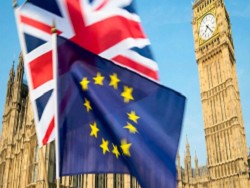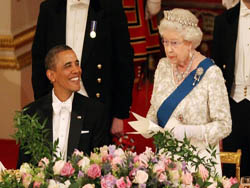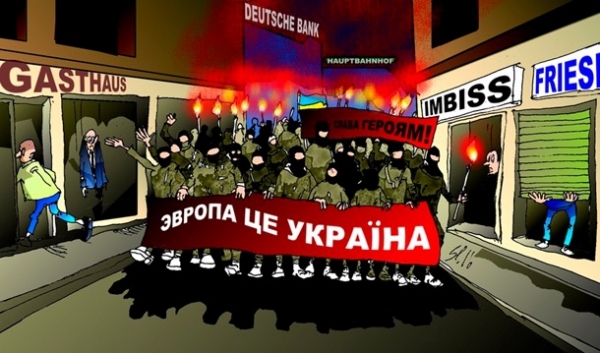
Last time, the EU shows us a systemic crisis management in the spirit of the late Gorbachev. What to do when your experts are biased or incompetent?
He loves to say Mr. Gref, now is not technological race, and competition management systems.
Any management system, no matter how perverted the creators must have approximately such a form to contain the following elements):
— collection of information;
— processing of information;
— decision-making;
— transfer management signals;
— feedback and correction.
Today, based on the results of the referendum on withdrawal of Britain from the European Union (as in the case with the referendum in the Netherlands) we see that the Western system of governance loud fucked up.
I quote for clarity:
“The second survey conducted during a referendum on Britain’s membership in the EU showed that defeated enemies Brexit. This was announced on his page on micro-blogging network Twitter, the head of the company for the study of public opinion Ipsos Mori, Ben page.
“We conducted a survey and obtained the following data: 54% to stay (in the EU) versus 46% to leave,” he wrote.
According to the sociological service YouGov, which previously published the results of its survey, for the preservation of the country’s membership in the community of 28 States were made by 52% of British, 48% voted for severance of relations with Brussels.”
One of two things: either the British learned EN masse to lie to pollsters, or the pollsters lied to customers.
So what we have:
1. Falsification of data at the stage of gathering information.
2. The ideological engagement of the expert community, which under the weight of their prejudices and fears, are unable to objectively predict the outcome.
3. Overconfidence elites, which allowed the referendum in the hope that “ride”, as happened with Scotland.
In addition, even supporters of the “Remain” noted that the propaganda campaign of opponents Brexita was built badly. It was built on the broadcast of “expert opinions” of various Nobel laureates and other celebrities, and most importantly, on the fear mongering, how bad can it be if Britain leaves the EU. Indeed, fear is a powerful motivator, but people don’t like being intimidated.
That is, in General, all failed components – information gathering, Analytics, and decision-making, and their implementation.
And Juncker was not followed the principles of sun zi, did not leave neither myself nor the leadership of Britain room for manoeuvre when he said that “the EU has already offered the UK the best possible conditions and will not be better”.
As a result, the failure (from the point of view of the elites) of the result of the referendum and the morning conversation of the Queen with David Cameron, which ended with the sudden “voluntary” resignation of the latter.
But this is not a failure of one Cameron, it is a failure of the whole European system of governance as a whole.
The same thing happened with the referendum in the Netherlands. Initially unable to stop his conduct, and then are unable adequately to carry out the campaign and consider countermeasures, the result had stupidly ignored the will of the people. Yes, the result (the signing of Ukraine’s European integration) was achieved, but at what cost? The EU has shown itself anti-democratic dictatorship, and as a result, the number of dissatisfied and eurosceptics has increased significantly.
But if you have at the end of the management cycle, the result is worse than in the beginning, it is an unequivocal failure.
And if we were talking about an isolated case, then all could be attributed to chance. But these failures come one after the other that allows to speak about system crisis management systems.
So a question for Mr. Gref: and maybe not worth too much to stare to the West, if they’re so regularly fail? Can we just sit by the river?
Alexander Rogers








